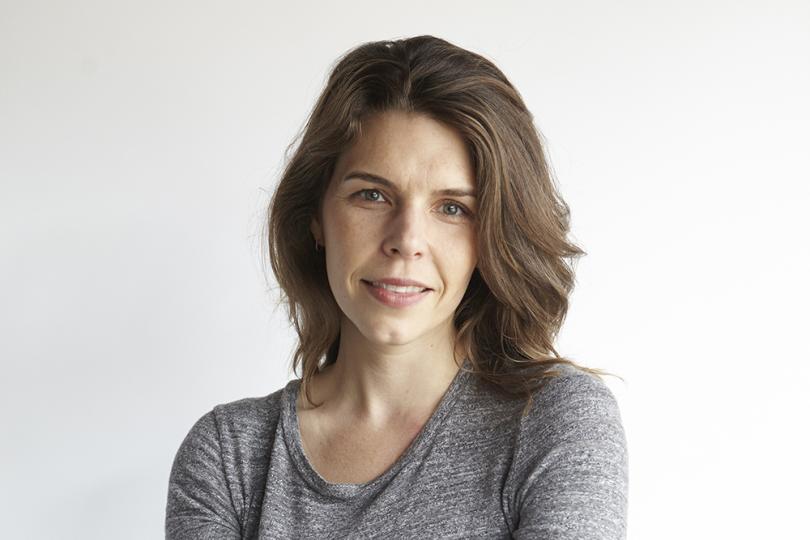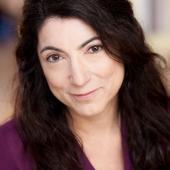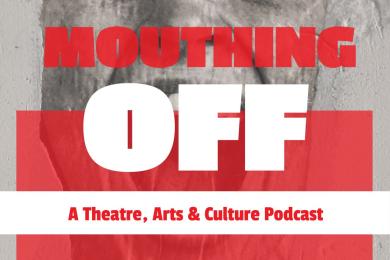Seeing the "universal" through the lens of women

Kate Hamill’s stage adaptation of Louisa May Alcott’s Little Women is just one of the hundreds of events taking place across the country to celebrate the 150th anniversary of the book’s publication. Sarah, who directed Kate Hamill’s (superb, very charming!) adaptation of Jane Austen’s Sense and Sensibility at the Guthrie in 2016, generously took time out of tech week to answer a few questions we had about this latest Rasmussen/Hamill collaboration, opening this Saturday at the Jungle Theater.
How did this show come about? Who had the idea for it? You or Kate Hamill or someone else, and how did you go about making it happen?
Kate and I had a great time working on Sense and Sensibility. We wanted to work on another new project from scratch. We met up in Brooklyn exactly three years ago – I said I have some ideas, and she said she had some ideas. I said “How about Little Women?” And she opened her notebook and Little Women was at the top of her list. So, we took it as a sign. We had no idea it was the 150th Anniversary this year.
Were you a Little Women fan before this? Did you read the book as a kid? If you loved it back then, what do you think it was about the story that captured your heart?
I did read the book as a kid - and remember watching the Katherine Hepburn version with my grandma. I loved novels with headstrong, stubborn female heroes who found their way through their independent spirit. Meg Murray, Jo March, Anne Shirley – those fictional girls inspired me.
I tweeted a few weeks ago about how I was rereading Little Women in preparation to see this show, and I commented that I assumed that most women – or probably every woman I know - who read the novel as a girl must certainly have identified with Jo (as opposed to the other 3 sisters). To my surprise - and delight - Kate Hamill tweeted in reply, that she identified with all four sisters! What about you? Were you a “Jo”- identifier? Do you identify with any of the other characters?
I think we go back to stories like this because we see new things in them. I totally identify with Jo’s path as a creative artist. But as the mother of two kids, a line that always hits home in our play is Meg saying, “I’m the Marmee now.” And I think Marmee is an incredible role model – she's compassionate and funny and encourages each of her daughters that there are so many ways to be in the world. That message still really resonates – there is no one “right” way to be a woman.
As mentioned above, you directed Kate Hamill’s wonderful adaptation of Sense and Sensibility at the Guthrie in 2016. I am aware that Hamill acts as well as writes. (She appeared in the New York production of Sense and Sensibility as Marianne). Do you know her? What’s she like? What do you like about her writing? What do you like about directing her work?
Yep - Kate has been involved every step of the way developing this play. She’s like her writing – spunky, outspoken, very funny. She’s also quite thoughtful and passionate about the underdog having a voice. Kate and I talk a lot about stories that shaped us as kids – she loved Robin Hood - and I think she truly is changing our field by writing better roles for women.
Who’s designing the show? How did you go about assembling your design team? Did your vision precede the choosing, or did the team co-create the aesthetic?
Chelsea Warren is doing sets - she's worked with Kate before and has a great sense of the way her plays move. We aren’t creating a museum here, but a theatrical version that captures the spirit of the original. And Robert Elhai is doing original music – he does a ton of movies and has a great sense of sweeping movement and beauty. Marcus Dillard is on lights – I adore his work, but this is the first time we’ve gotten to work together. And Rebecca Bernstien is newish to town and is doing lovely clothes.
Can you talk a little about your process? How do you prepare? Once the cast is together, how do you start things off, get the ball rolling? How long do you rehearse the cast? Does the cast devise?
This is a much longer question - but one of the things I love about new work, is that this cast is making it up with the writer as we go. So their fingerprints are really a part of it all.
I know that you are a big advocate of giving space to women’s stories and voices. Louisa May Alcott would seem to be a natural fit, as an early feminist, or at least a writer who was pro-female empowerment. But as you know, some feminist scholars have a less than adoring opinion about the novel, claiming that Little Women’s “lesson” is that unruly girls should move from independence and sisterhood to wifehood and motherhood. Jo starts out as an advocate for female independence – and winds up saying that happiness is impossible without hearth, husband and kiddos. And Mrs. March (Marmee), who Alcott presents as very sympathetic, keeps talking about the necessity of female self-abnegation. So what’s your take? Does Little Women reaffirm gender norms of its time, or does it resist them, or does it do a little of both?
I think it’s of course a product of its time. But I think it was super progressive 150 years ago, and still is. Jo completely defied gender norms, as did Alcott. And she made a living as a writer at a time when that was really rare. Our play reflects Alcott’s independent spirit, I think it honors some things that weren’t possible 150 years ago (we leave off before Jo marries, and focus more on her career). I love this new article on why this story still matters.
Is there something to take from Jo’s struggles with gender identification? Young Jo says she wishes she were a boy, so she could go “fight with Papa”; she wants to be a drummer boy, and then she has her hair cut off to raise money for “the Cause” – the Union. As she gets older, she doesn’t exactly girl out, but she comes to identify as a woman. Does the play put any emphasis on that gender dynamic–transition theme?
Jo is a very complex character indeed. The play follows her struggles with gender roles, and the idea of “womanhood” that is projected on her, and every other woman of her time. What I love about Kate’s interpretation is that she allows Jo to really grapple with this, while Laurie, her partner in crime, struggles with his own concept of femininity and masculinity. These two characters almost entirely reject the roles put upon them, revealing that a woman can be whoever she wants to be, regardless of what society expects, albeit it is difficult.
It is hard to for any play to escape the now, even if it wants to. What does Little Women offer to us at this moment? What does it reveal about our situation?
Little Women is as timely now as it ever has been. You look at these four sisters, each vastly different from one another. In the play, Marmee compares each one to a different flower, together creating a beautiful bouquet. Little Women offers us a chance to see how four different women come into their own, and grow into their own versions of womanhood. Jo rejects conformity and becomes a writer. Meg becomes a mother and raises her own children. Amy travels the world and ultimately marries. Beth lives on, serving as an inspiration to Jo to “write what she knows”. Each one shows us that women can take on whatever role they wish in life, and craft their own future.
Obviously, everyone who already loves Little Women – or loves Kate Hamill and/or The Jungle – will want to see this production. Who else might most enjoy, or most benefit from, seeing this production?
A big part of my work is seeing the “universal’ through the lens of women. Women have had to watch stories through mainly male protagonists on the page, stage and screen for centuries. This is a story about family, growing up, finding one’s voice and holding on to one’s dreams. That is a story that can speak to all of us, I think. And it’s one of the reasons this book remains a bestseller, with new movie adaptations in the works as we speak. It’s in the zeitgeist right now!
Do you have any favorite lines from the show?
There are many poignant moments in the show, especially between the girls themselves. It’s too hard to choose just a few!
Lastly, could you please say a bit about The Jungle’s program to nurture young women writers.
We at the Jungle are very proud to have our Jungle Writes program. It offers a chance for young women to learn valuable life skills as artists, put their talents to work as they craft their own small pieces, and be mentored by local playwrights and teachers. Plays by women remain underrepresented and just 3.5% of plays on U.S. stages are by women of color. It’s our hope that this program will inspire diverse girls to see they can have a voice and valued impact in the field.
Little Women, a Jungle Commissioned World Premiere, opens Saturday, September 15th at the Jungle Theater at 2851 Lyndale Ave. S, Minneapolis, MN 55408. For tickets and information go to The Jungle Theater's website.




